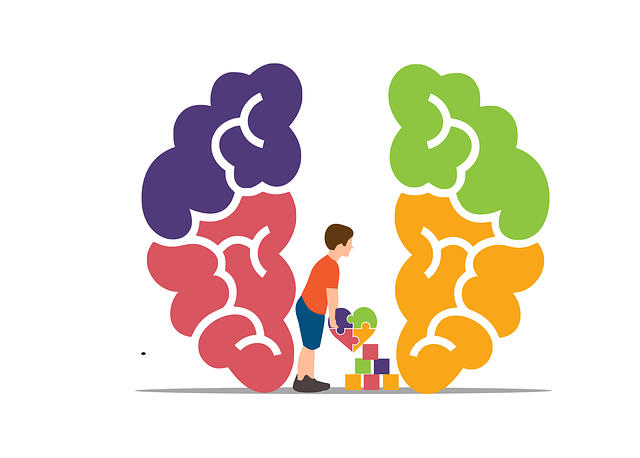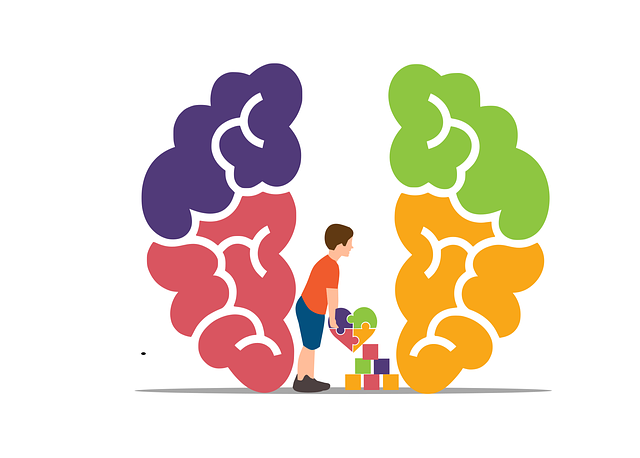Louisville Terminal Illness Therapy focuses on empowering patients through positive thinking, replacing negative thought patterns with optimism, and enhancing mental well-being. This holistic approach combines evidence-based practices like mindfulness, visualization, and cognitive reframing with creative outlets to reduce stress and improve mood management. Implementing LTI involves structured, empathetic steps: fostering open dialogue, using tailored Resilience Building strategies, and leveraging multimedia resources. Tracking progress through goal-setting and self-reflection helps patients develop inner strength, emotional intelligence, and sustained positive mindsets to navigate challenges with grace and renewed purpose.
Positive thinking exercises have proven to be powerful tools for enhancing well-being, particularly in managing terminal illness. This article explores the science behind positive thinking and its profound effects on mental resilience. We present a practical guide to designing and implementing effective strategies, drawing from the success of Louisville Terminal Illness Therapy. Through step-by-step instructions, we show how individuals can navigate their journey with hope and positivity, offering valuable insights for both personal growth and therapeutic practices.
- Understanding Positive Thinking and Its Impact on Well-being
- Designing Effective Positive Thinking Exercises
- Implementing Louisville Terminal Illness Therapy: A Step-by-Step Guide
- Tracking Progress and Sustaining Positive Mindsets
Understanding Positive Thinking and Its Impact on Well-being

Positive thinking is a powerful tool that can significantly impact an individual’s overall well-being and quality of life, especially those facing challenging circumstances like terminal illness. In Louisville Terminal Illness Therapy, professionals focus on harnessing the benefits of positive psychology to empower patients. By cultivating a positive mindset, individuals can build resilience and inner strength, which are crucial for navigating difficult situations with grace and dignity.
This exercise involves recognizing and challenging negative thought patterns, replacing them with more constructive and optimistic ones. It encourages individuals to focus on what they can control and reframe setbacks as opportunities for growth. With the guidance of crisis intervention techniques, people can learn to manage stress, anxiety, and depression effectively, thereby enhancing their ability to cope with life’s challenges. This approach not only improves mental health but also fosters a sense of hope and empowerment, enabling individuals to live more fulfilling lives despite adversity.
Designing Effective Positive Thinking Exercises

Designing Effective Positive Thinking Exercises involves creating activities that cater to various aspects of mental well-being, particularly relevant for individuals navigating challenging situations like terminal illness in Louisville. A balanced approach is key; exercises should combine elements of mindfulness, visualization, and cognitive reframing to foster a positive mindset. For instance, guided meditations focusing on breath control and pleasant memories can help reduce stress and improve mood management. Incorporating techniques like conflict resolution strategies into these practices enables individuals to navigate emotional challenges more constructively, enhancing their overall resilience.
When tailoring these exercises for terminal illness patients, it’s crucial to consider their unique needs and comfort levels. Some effective methods include journaling prompts that encourage reflection on life’s blessings and gratitude practices, which can be particularly powerful tools for mood regulation. Additionally, incorporating creative outlets like art or music therapy allows individuals to express themselves in non-verbal ways, offering another avenue for emotional release and positive thinking.
Implementing Louisville Terminal Illness Therapy: A Step-by-Step Guide

Implementing Louisville Terminal Illness Therapy: A Step-by-Step Guide
The journey towards implementing Louisville Terminal Illness Therapy (LTI) involves a series of thoughtful steps that prioritize both mental wellness and emotional resilience. Commence by fostering open dialogue, ensuring comfort and empathy within the support system. This initial phase is pivotal for establishing trust and understanding, allowing individuals to express their feelings and fears openly. Subsequently, incorporate tailored Resilience Building strategies, such as cognitive-behavioral techniques, to empower individuals in managing stress and maintaining a sense of control.
Leveraging the Mental Wellness Podcast Series Production can be a game-changer. Curate informative podcasts that delve into various aspects of terminal illness, featuring expert insights on coping mechanisms, empathy-building strategies, and personal narratives from those who have navigated similar paths. This multimedia approach not only enriches the learning experience but also encourages a sense of community among listeners. Regularly update content to address evolving challenges and celebrate victories, ensuring that the LTI program remains dynamic and relevant in supporting individuals through every stage of their journey.
Tracking Progress and Sustaining Positive Mindsets

Tracking progress is a vital aspect of fostering positive thinking exercises, especially for individuals navigating challenging circumstances, such as those with terminal illnesses. In Louisville Terminal Illness Therapy, therapists often utilize tailored goal-setting techniques to help clients measure their emotional growth and overall well-being. By regularly assessing progress, individuals can gain a deeper understanding of their achievements and areas that require further attention. This process allows them to adjust their strategies, stay motivated, and cultivate resilience.
Sustaining positive mindsets is an ongoing practice that requires consistent effort and the integration of various stress reduction methods. Louisville Terminal Illness Therapy encourages clients to develop inner strength and emotional intelligence as powerful tools for maintaining optimism. Engaging in regular self-reflection, practicing gratitude, and adopting healthy coping mechanisms can contribute to a more durable positive mindset. These strategies enable individuals to navigate life’s challenges with greater equanimity and a renewed sense of purpose.
Positive thinking exercises, as demonstrated by the successful implementation of Louisville Terminal Illness Therapy, offer a powerful tool for enhancing well-being. By designing tailored activities and tracking progress, individuals can cultivate sustainable positive mindsets that improve quality of life. This comprehensive approach, detailed in our step-by-step guide, empowers folks to navigate challenging circumstances with resilience and hope.














